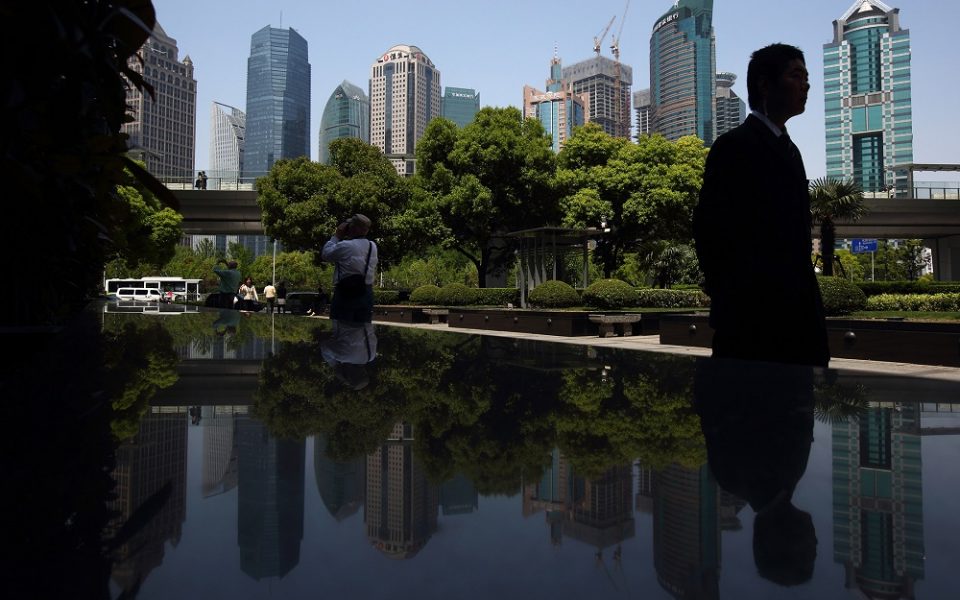What should worry us in China

In July, China Digital Times, a US-based news aggregator that monitors China’s media, published a leaked document that allegedly informed Chinese journalists who cover the country’s financial markets that their government is watching.
“Do not conduct in-depth analysis, and do not speculate on or assess the direction of the market,” the memorandum warned. “Do not exaggerate panic or sadness. Do not use emotionally charged words such as ‘slump,’ ‘spike,’ or ‘collapse.’” We now know the Chinese government was serious about this. In recent days, state-run media have broadcast “confessions” from journalists who have accepted responsibility for recent turmoil in China’s benchmark Shanghai stock market.
It’s not market volatility in China or its possible impact on the world’s second largest economy that should worry the rest of us. It’s that Beijing’s official response to these issues is to shut down debate about how to respond to it and to find scapegoats to accept responsibility for it.
Fears for the stability of China’s economy are exaggerated. On the one hand, it’s natural to fear the global impact of any faster-than-expected slowdown there. China is now the world’s lead trading nation and a major driver of commodity prices. European and American stock markets now rise and fall on its latest manufacturing data. Economies as diverse as Japan, Chile, Australia, Thailand, South Africa, South Korea, Brazil, Malaysia, Nigeria, Argentina, Russia and dozens more feel the pain as economic activity in China slows.
But the emerging giant is not headed for a “hard landing” any time soon. The state’s ability to boost bank lending and invest large sums in important infrastructure projects across a broad range of strategically important economic sectors suggests that China will come close to this year’s growth target of “about 7 percent.”
It’s true that the Shanghai market has fallen by 40 percent in recent weeks, but that follows a surge of 150 percent over the previous year. Why should the sharp drop reveal more about the underlying strength of China’s economy than the earlier (and much larger) surge? In reality, this is an immature market, a more reliable barometer of the state’s appetite for policy manipulation than of China’s real economy. Just one in 30 Chinese citizens own shares, a much lower percentage than in developed markets.
Nor should the world be overly alarmed about China’s decision to devalue its currency. The move wasn’t nearly large enough to significantly alter the balance of China’s trade with its largest partners, and the IMF has since offered praise for the move, because it brings the currency’s value into better alignment with market forces. In short, China’s economy is more stable than many realize, and its international influence will continue to expand.
But before we decide that fears for China’s stability are best ignored, let’s hope that China’s turbulent summer will make governments and companies that are too reliant on China’s expansion better aware of the long-term dangers they will surely face if they fail to hedge their bets on it. China is likely to remain stable for years. But the tendency of its leaders to backtrack on necessary reforms—by, for example, intervening to prop up markets that are better left alone—is worrisome. More frightening is Chinese leaders’ habit of relying on censorship and punishment to manage unforeseen challenges.
There is another concern. China cannot remain strong and stable indefinitely without economic reform. In particular, China’s leaders must shift the economy away from heavy reliance on exports by empowering China’s people to buy more of the products China produces. That is essential for the creation of a broad middle class and sustainable long-term growth. Success therefore depends on an enormous transfer of wealth to Chinese consumers.
To ensure that those who will have to surrender much of this wealth do not resist these reforms, President Xi Jinping has launched an anti-corruption drive that has already expelled thousands from the party and pushed thousands more into prison. For the moment, Xi remains fully in charge, but a growing list of potential enemies within the leadership may be waiting for the moment when his government loses public confidence to fight back against reform. That’s a longer-term risk to watch.
In short, fears of near-term trouble are exaggerated. But if these fears persuade governments and companies dependent on Chinese growth to prepare for more volatility—and to hedge their bets on China’s ability to deliver stable and lasting long-term growth—then these fears will have proven useful indeed.
* Ian Bremmer is the president of Eurasia Group and author of Superpower: Three Choices for America’s Role in the World. You may follow him on Twitter @ianbremmer.





